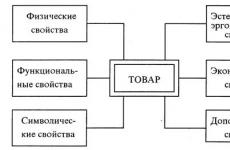Vitamins are considered antioxidants. Antioxidants
Experts unanimously argue that it is much more beneficial for health to get antioxidants and any other nutrients directly from natural food sources (). However, some types of free radical and oxidation fighters can also be consumed by you in the form of supplements that are bought in pharmacies.
For example, a number of studies have shown that antioxidant drugs such as lutein and glutathione are beneficial in preventing vision loss, joint problems, and diabetes. At the same time, other experiments have established that excessive doses of vitamin A or vitamin C can be harmful and only exacerbate the disease.
If you are generally healthy and eat a varied diet, then you do not need to resort to additional sources of antioxidants from pharmacies at all. But if the risk of vision loss or heart disease is high enough, then we recommend that you talk with your doctor about starting to use the following antioxidant drugs (at the right doses and assuming a healthy lifestyle).
Antioxidant drugs - top 10 list:
- Glutathione- one of the most important antioxidants for the body, which helps to activate the activity of other antioxidants and vitamins. Plays a role in protein and fat digestion, enzyme creation, detoxification and breakdown cancer cells.
- Quercetin- extracted from berries and leafy greens, therefore it is practically safe for health. Helps manage inflammation, cardiovascular disease, allergies, infections, chronic fatigue, and autoimmune disorders such as arthritis.
- Lutein- a powerful antioxidant that is beneficial for the eyes, skin, arteries, heart and immune system. It is believed that it is more useful when obtained from food than from pharmaceutical preparations. According to current data, it can have a positive effect on cancer of the mammary glands, colon, cervix and lungs.
 4. Vitamin C- a well-known drug for improving immunity, supporting the body with colds, flu, skin and eye problems.
4. Vitamin C- a well-known drug for improving immunity, supporting the body with colds, flu, skin and eye problems.
5. Resveratrol- naturally found in cocoa, red grapes and dark berries (lingonberries, blueberries). Helps protect the heart, arteries, eyes and more.

6. Astaxanthin- a natural antioxidant that affects the reduction of age spots, increased energy levels and joint health.
7. Selenium- a useful microelement that can be found in the soil, some products and even water. It supports adrenal and thyroid function, fights viruses, protects against heart disease, and soothes asthma attacks.

9. Chlorophyll It is a powerful antioxidant useful for detoxification, cancer prevention, and protecting DNA from damage caused by toxins or stress. In addition to the pharmacy, it is found in products such as spirulina, leafy green vegetables and blue-green algae.
10. Essential oil incense- is a popular treatment for various forms of cancer, including breast, brain, colon and prostate cancer. It is rubbed into the body or dissolved in water for ingestion.

In nature, there are a huge number of substances that can benefit our body. We may well get them along with food, but sometimes such receipts are simply not enough. In this case, a variety of pharmaceutical preparations come to the rescue. One of the extremely important and useful elements for our body are antioxidants. Antioxidant vitamins are drugs that can prevent oncological and cardiovascular diseases, slow down the aging process, and heal the body. Which is very good! Antioxidants are found in various living foods, but they can also be bought as preparations in pharmacies, so let's acquaint you with them, here is a list of the names of such vitamins. Let us give, as an example, the best antioxidant preparations in our opinion.
Vitamins with antioxidants - name
Vitrum antioxidant
This vitamin complex has strong antioxidant properties. The drug is sold in the form of tablets, each of which contains a dose of vitamins A, E and C, as well as a certain amount of copper, zinc, manganese and selenium.
Such a medicinal composition is able to protect the body at the cellular level from the aggressive effects of free radicals. Its use helps slow down the aging process of cells, reduce the likelihood of developing cancer and heart disease. Among other things, this complex effectively increases the resistance of the human body to viral and infectious diseases and different kind intoxications.
Vitrum Antioxidant should be taken one tablet per day immediately after a meal. The duration of such treatment should be one to two months.
The drug is not suitable for use during pregnancy, as well as if the patient has an individual intolerance to its components. Particular care in such therapy should be observed with an excessive likelihood of thromboembolism, as well as myocardial infarction or severe cardiosclerosis. And we are on this page of the site www.!
Sinergin
A distinctive feature of this drug is the presence in its composition of both water-soluble and lipophilic antioxidants, due to which this agent contributes to the effective neutralization of free radicals inside all tissues and cells of the body.
Synergin is also available in capsules, each of which is a source of vitamins C and E, as well as ubiquinone (coenzyme Q10), lycopene, rutin and beta-carotene. In addition, the drug also contains lipoic and succinic acid, vitamin A and magnesium oxide.
Capsules are divided into two groups - No. 1 and No. 2. The first should be taken in the morning, and the second in the evening. It is best to take the reception directly during the meal.
The manufacturer indicates that Sinergin is not recommended for use in children under the age of twelve, as well as in patients with individual intolerance to any of its components.
Resveralgin
This medication is an excellent complex of powerful antioxidants, which is usually used as a biologically active food supplement.
Such a drug is available in the form of capsules that contain resveratrol, vitamins C and E, beta-carotene, as well as some iodine, selenium, coenzyme Q10 and flavonoids. The drug has in its composition a number of extracts, represented by extracts of red wine, green tea and bubbly fucus, which also makes it a source of polyphenols, catechins and caffeine.
The use of Resveralgin is contraindicated if the patient has an individual intolerance to its components. Also, this medicinal composition is not used during the period of bearing a child and at the stage of breastfeeding.
Dihydroquercetin
An excellent antioxidant drug is Dihydroquercetin, which is available in the form of tablets and drops. Such a drug contains vitamins P and C, as well as ascorbic and benzoic acids. In addition, it contains water-alcohol extracts of plant substances - red grapes, valerian root, hawthorn and wild rose fruits, as well as verbena and hop cones.
Such a medication cannot be used if the patient is allergic to any of its components. In addition, it is not prescribed to children. Before use during pregnancy and breastfeeding, you should consult a doctor.
Selenium forte
This medication has in its composition a minimum of components, which at the same time are distinguished by a huge antioxidant activity. Each tablet of the drug is a source of selexene (selenium) and tocopherol (vitamin E) in the volume daily allowance. Selenium forte should be taken one tablet per day for a month. It is best to take the drug directly during the meal.
It should be borne in mind that this medicinal composition cannot be used for individual intolerance, pregnancy, breastfeeding as well as in childhood.
Important!
Swedish researcher Martina Bergö, in the journal Science Translational Medicine, cited the results of studies in mice that showed that the antioxidants acetylcysteine and vitamin E can stimulate lung cancer. This is due to the shutdown of the p53 gene when taken for a long time in small doses. Thus, there was a recommendation to avoid these antioxidants in smokers and patients with chronic obstructive pulmonary disease or even with a tumor. On the contrary, they can be useful for healthy cells of healthy people, said a scientist at the University of Gothenburg. However, it is worth taking medications antioxidants with the permission of a doctor and know when to stop!
Conclusion
Based on the words of Martin Berge, we can conclude that he does not call for rushing from one extreme to another. He recommends following the recommendations printed in the instructions for use of such medicinal product like vitamins. In such an annotation, in particular, the period of admission is always indicated. So when taking any vitamins, do not forget to take the prescribed breaks and do not exceed the dose. In this case, there will be no problems, since any funds are supplied to the market after appropriate research. It should also be taken into account that some published studies are incorrect. So a research team from the Canadian hospital of St. Michael in Toronto stated that the use of folic acid five times a day at a dose of the latter of 2.5 mg promotes the growth of existing pre- or cancerous cells in the mammary gland of experimental mice. However, they did not commensurate the weight of mice, which is significantly less than that of humans, and the doses of the drugs. The instructions for the use of folic acid for humans indicate a therapeutic dose of 1-2 mg with a tolerance in some cases up to 5 mg 1-3 times a day for 20-30 days. Moreover, the weight of a person is on average 55-75 kg, and that of a mouse is 12-30 g, that is, it differs by about 2000 times. So the conclusions of some researchers are incorrect and should not frighten the public.
Antioxidant drugs, the list of which is given above, are far from all of those that are available for purchase. In addition to the already listed compositions, antioxidant preparations in pharmacies are also represented by other nomenclatures. For the selection of the most effective composition, consult a doctor, including about dosages and breaks. Be healthy, do not believe in incorrect research!
For many of us, antioxidants seem like a panacea for all ailments and diseases, and also a source of eternal youth and beauty - a kind of killer of free radicals that poison our lives and take away youth.
But not having the time or desire to delve deeper into this topic, we run to the pharmacy and just in case we buy the cherished bottles with such a promising inscription - "Antioxidants" in the hope of staying forever young and living long.
What do antioxidants do?
Once inhaled into the lungs, oxygen is metabolized into the blood, turning into unstable molecules known as "free radicals". At their core, these are destructive molecules that can damage DNA and the cell membrane, but in a certain amount our body needs them for many vital processes.And only their excess can cause damage and lead to cancer, cardiovascular disease, liver disease, etc.
Antioxidants, to some extent, prevent free radical damage to cells by neutralizing them, entering our body in the form of food from many foods in which they are found in the form of: 
- vitamins A, C and E,
- minerals - selenium, zinc and copper,
- phytochemicals from plants, fruits and vegetables.
Benefits of Antioxidants
Different types of antioxidants Antioxidants benefit in different ways.There is a wide range of antioxidants in nature, and since they are very diverse, the benefits of one type or another differ significantly:
- Beta-carotene (and other carotenoids) are very beneficial for eye health;
- Lycopene is beneficial for maintaining prostate health;
- Flavonoids are especially beneficial for heart health;
- Proanthocyanidins are beneficial for urinary tract health.
The benefits of antioxidants for the skin
When the skin is exposed to high levels of ultraviolet light, photooxidative damage is induced by the formation various types reactive species oxygen, including singlet oxygen, superoxide radicals and peroxide radicals, which damage cellular lipids, proteins and DNA, and these are considered to be the main causes of:- erythema (sunburn),
- premature skin aging,
- photodermatosis,
- skin cancer.
Astaxanthin, accompanied by beta-carotene, combined with vitamin E, has been proven to be one of the most powerful antioxidant combinations to protect the skin from reactive oxygen species.
Antioxidants: a list of drugs
BAA "Lycopene" from Evalar Form of preparation: capsules.  | Active ingredient: lycopene. Results: Slows down the natural aging process of the skin; Strengthens the prostate gland; Stabilizes cholesterol levels; Maintains normal blood viscosity; Improves the activity of the heart, strengthens blood vessels. | Dosage: Released without a prescription. |
BAA "Resveratrol" Form of preparation: capsules.  | Active ingredient: resveratrol. Results: Normalizes lipid levels; Slows down the growth of abnormal cancer cells; Provides vascular elasticity; Fights inflammation and bacteria; Promotes smoothness and elasticity of the skin; Eliminates allergic reactions; Reduces blood sugar levels to normal; Improves eyesight. | Dosage: Sold without a prescription. |
Vitamin complex Complivit Radiance. Antioxidants of youth Form of preparation: capsules  | Active ingredients: lycopene (from tomato extract), resveratrol (from red grape extract), hydroxytyrosol (from olive extract). Results: It has a general healing effect on the body; Significantly improves appearance skin; Strengthens nails and hair. | Dosage: Released without a prescription. |
Vitamin complex "Vitrum. Antioxidant" Form of preparation: tablets  | Active ingredients: minerals and multivitamins. Results: Increases the body's resistance to colds and infections; Accelerates recovery in the postoperative period; Helps to recover after taking antibiotics; Minimizes the impact of aggressive environmental factors. | Dosage: Released without a prescription. |
The drug "Dibicor" Release form: tablets  | Active ingredient: taurine. Results: Increases endurance during heavy physical exertion; Improves the processes of blood circulation and energy supply to tissues; It contributes to a significant decrease in blood sugar levels. | Dosage: Duration of reception is discussed with the attending physician. Released without a prescription. |
The drug "Glutargin"  | Active ingredient: arginine glutamate. Results: Cleanses the body of all toxic and harmful substances with intoxication with chemical poisons and alcohol. Reduces hangover; Increases tolerance to physical activity. | Dosage: |
The drug "Asparkam" Release form: tablets and ampoules  | Active ingredients: Potassium aspartate, magnesium aspartate. Results: Stimulates metabolism in the heart muscle; Replenishes the lack of potassium in the blood; Normalizes high blood pressure; Eliminates arrhythmia; Contributes to normal cardiac activity. | Dosage: Released without a prescription. |
BAA "Coenzyme Q10" Form of preparation: capsules  | Active ingredient: vitamin-like compound Coenzyme Q10. Results: Prevents the formation of blood clots; Prevents cardiovascular diseases; Makes the skin firmer and more elastic; Prolongs youth; Improves the condition with increased physical exertion. | Dosage: Released without a prescription. |
Librederm Antioxidant face cream "Vitamin E" Release form: cream  | Active ingredient: lecithin, tocopherol. Results: Refreshes fabrics; Restores and maintains normal hydro-lipid balance; Blocks the negative effect of ultraviolet rays; Slows down aging. | Application: Apply with light movements along the massage lines of the face and neck. Released without a prescription. |
In addition, there are many inexpensive ones that contain antioxidants and other effective ingredients that prevent early skin aging.
Harm of pharmacy antioxidants
Many adults use pharmacy antioxidant preparations as part of the overall health of the body, and they often do this by making a decision on their own and without consulting a doctor. People who exercise and bodybuild are also more likely to use these types of drugs.High doses of single antioxidant supplements such as vitamin E, vitamin C, selenium, and beta-carotene can potentially accelerate the aging process and increase cancer risk rather than a protective effect.
- In a study of the antioxidant beta-carotene among 29,133 Finnish male smokers at high risk of lung cancer, smokers who took a beta-carotene supplement had a significantly higher risk of lung cancer than those who took a placebo.
- A 2011 study published in the Journal of the American Medical Association found that vitamin E supplements carry an increased risk of prostate cancer.
- Another study published in the Journal of Nutrition reported that vitamin C, vitamin E, beta-carotene, selenium, and zinc supplementation increased the risk of skin cancer in women.
- Pharmaceutical antioxidant preparations do not allow the body to naturally create its own antioxidants.
- They cannot prevent or cure all diseases: taking vitamin C will not prevent you from catching a cold, just as taking vitamin E will not prevent you from getting old or getting sick with heart or other diseases such as schizophrenia or bipolar disorder. Although antioxidants have been shown to reduce the risk of these diseases, this is by no means a guarantee of preventing them.
- In high doses, they act as pro-oxidants:
- One study found that vitamin C supplements can act as a pro-oxidant when taken in large amounts. This is because vitamin C reacts not only with free radicals, but also with other molecules in the body. One of these reactions is the Fenton reaction - when we receive more antioxidants than we need, our body begins to produce additional free radicals, so antioxidant supplements become ineffective in stopping the production of free radicals. Man-made pharmaceutical antioxidants are especially ineffective against these free radicals compared to natural ones produced by the body.
- If you are not deficient in the vitamin, but you are taking high doses of vitamin A, D, E, or K (fat-soluble antioxidants), which can be stored in the body for a long time, they can become toxic and therefore harmful. Water-soluble antioxidants can also cause side effects when taken in high doses, for example, vitamin B6 can cause nerve damage, while vitamin C can cause nausea, stomach cramps, fatigue, headaches, diarrhea, and kidney stones. High doses of vitamin C can also lead to dangerous high levels gland.
- Antioxidant medications may reduce the effectiveness of exercise (eg, muscle building, life expectancy, reduced risk of diabetes). Athletes who have taken antioxidant supplements to combat excess free radicals produced by the body during exercise thus preventing their bodies from receiving the full benefits of exercise.
- These drugs increase the risk of early death or do nothing: 78 randomized clinical trials, which studied 200,000 healthy people and 81,000 people who had various types of diseases, found that there is no evidence to support the benefits of taking antioxidant supplements. What's more, those who took beta-carotene and vitamins A and E had an increased risk of early death.

Are Pharmaceutical Antioxidants Necessary?
Taking antioxidant drugs is necessary only on the recommendation of a doctor.People who are indicated for taking antioxidant drugs include:
- pregnant and lactating women,
- those who consume a large number of alcohol,
- drug addicts
- people suffering from long-term restrictive weight loss diets,
- old people,
- patients with malabsorption problems (eg diarrhea, pancreatitis, celiac disease and cystic fibrosis),
- women planning to become pregnant - folic acid supplements may reduce the risk of having a baby with abnormalities,
- people on a vegan diet who need vitamin B12.
Antioxidants in food
About 200 studies have shown that people who ate fruits and vegetables had a significantly lower risk of getting cancer. At the same time, lung cancer patients who followed a diet rich in natural antioxidants were able to live longer.In general, a varied and balanced diet that includes antioxidant-rich foods and drinks (such as fruits, vegetables, whole grains, cereals, tea, and coffee) is still considered healthier than taking antioxidant supplements.
They bring much more benefits to our body:
- Vitamin A from foods rich in beta-carotene (eg carrots, beets, sweet potatoes, spinach).
- Vitamin C from citrus fruits, berries, raw cabbage and broccoli.
- Vitamin E from whole grains, nuts, fish oil and green leafy vegetables.
- Beta-carotene and related carotenoids (eg lycopene, lutein) from red, yellow and orange fruits and vegetables.
- Selenium and manganese minerals from seafood, lean meats, nuts, and whole grains.
- Flavonoids from tea, coffee and berries.
- Resveratrol from red wine and dark grapes.
- Phytoestrogens from peanuts and soybeans.
Antioxidants are a group of active biological substances found in food. These are a kind of preservatives that can inhibit (delay, suppress) oxidation. The action of antioxidants is aimed at neutralizing free radicals, which are formed during natural metabolism and are present in the environment. Accumulating beyond measure in the body, radicals begin to pose a danger to human health, causing aging and the development of degenerative-dystrophic diseases.
The action of antioxidants
Free radicals are constantly formed in the human body as a result of many redox and metabolic reactions that are inherently related to the functionality of all organs and systems of the body. Under ideal conditions, they are produced so little that the natural antioxidants that come with food cope with them.
However, if a person constantly lives in extreme conditions (unfavorable environmental conditions, poor-quality food and water, smog of large cities, chronic stress, etc.), then much more damaging molecules are formed than the body (antioxidants) can neutralize. scientific way It has already been proven that the accumulation of a large number of free radicals contributes to the development of many diseases - from the common cold to cancer.
The mechanisms of action of the most widely known antioxidants are based on breaking the synthesis chains: their molecules bind with active radicals, turning them into inactive ones. Even with a low content of antioxidants in the body, the rate of oxidative reactions is significantly reduced. As practice has shown, the phenomenon of synergism is of great importance in the inhibition of oxidation processes. This is a mutual enhancement of the properties of antioxidants when they enter the body together or in the presence of others. chemical elements. The therapeutic effect of many multivitamin complexes is based on this principle.
Benefit and harm
Excess content of free radicals in the body causes its early aging and the development of a number of dangerous diseases:
- oncological;
- vascular (atherosclerosis, thrombosis, venous varicose veins);
- joint damage (arthritis, arthrosis, coxarthrosis);
- internal organs (liver, kidneys, gastrointestinal tract, etc.);
- bronchi, lungs and upper respiratory tract(asthma);
- central nervous system(depression, nervousness, chronic fatigue, Parkinson's disease, Alzheimer's disease);
- immune and endocrine systems;
- diabetes;
- coronary heart disease, heart attack and stroke;
- cataract and many others.
The number of free radicals in the body increases significantly under the influence of external negative factors: polluted atmosphere, tobacco smoke, excessive ultraviolet radiation, foods high in harmful chemicals. Thus, antioxidants are necessary for a person, the only stumbling block is the disputes of scientists and physicians about the maximum allowable doses of substances. An excess of antioxidants in the body can prevent the absorption of certain natural trace elements (iron, zinc, calcium, etc.).
Exposure to oxygen and sunlight causes intense oxidation of food, and, consequently, its spoilage. For better food safety Food Industry synthetic antioxidants are used as preservatives.
Antioxidants List
vitamins
- C. Necessary for the body to maintain normal levels of folic acid and hemoglobin. Helps the immune system to fully cope with its functions and protect the body.
- And in the form of carotenoids or retinol. Helps reduce the risk of developing oncological diseases, protects against macular degeneration of the retina, which causes blindness.
- E. Its action is aimed at preventing the oxidation of polyunsaturated fatty acids in cell membranes by radicals. Promotes the absorption of other vitamins, as well as best use proteins in the body. Significantly reduces the risk of blood clots a good remedy for the prevention of thrombophlebitis and atherosclerosis. In the treatment of oncological diseases with radiation and chemotherapy, it softens their negative impact on the body.
Minerals
- Manganese. Protects fatty acid cell membranes from free radical oxidation.
- Selenium. It is part of the enzymes that protect the body from radicals, it is necessary for the formation of connective tissue, bone growth, and normal absorption of iron.
- Copper. It is one of the main components of enzymes that protect the human body from free radicals.
- Zinc. Protects the DNA of cells, reduces the risk of developing cancer.
In tablets and other forms
The human body is constantly in need of antioxidants. Of course, the substances contained in natural products are more active and better perceived by the body, but in recent times there is a sharp drop in the content of vitamins and microelements in fresh vegetables and fruits. Given this, doctors recommend taking vitamin complexes, medications or dietary supplements 1-2 times a year.
The most common:
- vitamins:
- Vitrum. Contains vitamins A, C, E, K, group B, folic acid, potassium, calcium, phosphorus, iodine, selenium, ginseng root extract and many others.
- Compliment. Ingredients: vitamins A, C, E, PP, group B, iron, copper, zinc, etc.
- Teravit.
- Omega-3 fatty acids.
- Solgar with blueberries, with grape seed extract, with lipoic acid and coenzyme Q10, with lutein, astaxanthin, resveratrol, etc.
- Mexidol. It has antioxidant, antihypoxic and membrane-protective properties.
- Colloidal antioxidant Argo. Contains vitamins A, C, E, group B, selenium, zinc, rutin, grape seed extract, rosemary, ginkgo biloba, evening primrose oil and other components.
- Dihydroquercetin. A powerful antioxidant, prevents vascular fragility, enhances the effect of ascorbic acid, regenerates tissues, enhances microcirculation of fluids.
- Nano. Ingredients: Xanthone Mangosteen, Acai fruit, vitamin E, C, banana extract, avocado, glutathione, oats, anticyans.
- Interferon gel with vitamins (Viferon). It has bacteriostatic, immunomodulatory and antioxidant properties.
In products
It should be noted that water (natural, purified or structured) is a multifunctional antioxidant. It cleanses the body on its own and enhances the action of many water-soluble antioxidants.
Many vegetables contain flavonoids: cabbage, lettuce, spinach, beets, onions, garlic, eggplant, tomatoes, red bell pepper, carrots, young potatoes.
Beans: dark beans, lentils and other black crops.
Cereals: bran, buckwheat, rice, sunflower seeds, flax seed, etc.
Nuts: walnuts, hazelnuts, almonds, pistachios, peanuts.
Most tannins are noted in green tea, a little less in black tea, coffee, cocoa.
Antioxidant qualities have: liver, beef, lamb, oily fish, seafood, eggs, dairy products, mushrooms. In addition, the effectiveness of substances directly depends on the form in which the products are used (frozen, fresh or after heat treatment) and how well they are selected (the phenomenon of synergy).
in herbs
Natural antioxidants in herbs: Ginkgo Biloba, chamomile, calendula, linden, sea thistle, long turmeric, sage, rosemary, cloves, wormwood, fennel, yarrow, etc. Fruits: hawthorn, wild rose, mountain ash, viburnum.
Ginseng root, rhodiola (golden root) and ginger also have antioxidant properties, as well as immunomodulatory, tonic, antibacterial properties.
In bee products
Propolis is considered a powerful antioxidant and a cure for all diseases. It has hepatoprotective, antiseptic, analgesic, anti-inflammatory properties, regenerates tissues, activates metabolic processes. Can be used both externally and internally.
In cosmetics
Human skin is a kind of barrier that protects the body from the negative effects of the environment. These are ultraviolet, and radioactive radiation, dust and air pollution with chemical particles, and mechanical impact. After 25 years skin gradually lose their protective functions, and the action of free radicals reduces the production of collagen, which is responsible for the elasticity and firmness of the epithelium.
In cosmetology, antioxidants perform two roles: the first is used as preservatives and stabilizers. The second one slows down the processes of aging and wear of the skin, the formation of wrinkles, age spots, etc. The most common substances are: oily vitamins A, E, F, carotenoids, bioflavonoids, selenium, lipoic and ascorbic acid, coenzyme Q10, etc.
The pharmaceutical company LibreDerm has developed a whole series of unique and high-quality products with antioxidants: hand and face creams with vitamins A and E, with hyaluronic acid for the eyes, anti-aging based on collagen and grape stem cells, with kerotene, with herbs and natural oils.
Antioxidants are nutrients that are a kind of trap for free radicals, neutralizing the chemical processes they form. At normal functioning the regulatory system in the body maintains the necessary balance between the number of oxidation reactions and the rate of consumption of antioxidants. Failures in the regulatory system caused by insufficient intake of beneficial antioxidants in the body cause damage to healthy cells, as a result of which a number of unpleasant diseases can occur.
Each of us is born with a certain amount of absolutely healthy cells, which throughout life, to one degree or another, are exposed to the adverse effects of free radicals. Possessing high activity, unstable molecules cause great harm to cells and tissues, causing signs of external and internal aging of the body. Free radicals are produced inside our body during normal chemical reactions oxidation caused by external factors such as stress, smoking or environmental pollution.
What are antioxidants
Antioxidants are produced in the human body on their own, or they can come with food. The latter, by virtue of their origin, can be natural or synthetic. If there is a need to restore cellular balance and neutralize adverse oxidative processes in the body, then it is recommended to consume an increased amount of antioxidants from the outside.
The main sources of antioxidants of natural origin are fruits and vegetables. Moreover, the highest concentration of nutrients is observed in varieties that have a sweet and sour taste, red, black or Blue colour. Synthetic antioxidants are medicines or care products, some of which contain all the same vegetable raw materials. Carotenoids, flavonoids, selenium, vitamins C, E and CoQ10 are the main protection of cells from the negative effects of free radicals.

Foods Containing Antioxidants
The largest amount of nutrients - anti-radicals is found in fresh fruits and vegetables, which are rich in vitamins, carotenoids, alpha lipoic acid and other useful elements. Nutrition and health experts recommend a daily intake of antioxidants to protect your body from environmental stressors. What foods are the richest in antioxidants?
1. Antioxidants in berries and fruits:
- grenades
- plums
- black currant
- citrus
- raspberry and blackberry
- chokeberry
- cherry
- blueberry
- cranberry
Freshly squeezed juices and fresh juices also have all the antioxidant properties.
2. Vegetables containing antioxidants:
- onion and garlic
- carrot
- beet
- radish
- broccoli
- eggplant
- asparagus and spinach
- turnip and radish
- beans
3. Oils containing antioxidants:
- wheat germ
- Palm
- corn
- milk thistle
Also, some herbs and spices are rich in antioxidants, such as: parsley, oregano, turmeric, cinnamon and cloves. Nuts include walnuts, pistachios and almonds. Most healthy drinks: , green tea and red wine.

When Antioxidants Are Most Needed
Powerful oxidative processes occur in the following cases:
- Mono-diets and malnutrition;
- ultraviolet irradiation;
- Stress and prolonged depression;
- Sports and heavy physical exercise;
- Elderly age;
- Long-term residence in contaminated areas;
- Abuse of bad habits, in particular smoking.
To ensure the best antioxidant activity, antioxidants should be taken in combination. Proper nutrition, diet enriched with vegetables and fruits, intake essential vitamins and feasible physical activity will ensure good health and well-being on long years. Before taking drugs with an antioxidant effect, you should consult a specialist.
The use of antioxidants in the food industry
In the food industry, antioxidants are used as food additives in food products to prevent their disappearance due to their oxidation. Under the influence of air, namely the oxygen contained in it, food products are oxidized and their further use in food can cause poisoning. In other words, the task of an antioxidant is to prolong the life of food. There are other ways to reduce the effect of oxygen on food, for example, by using airtight packaging from which air is pumped out. Gas mixtures with a low oxygen content can also be used inside the package. But all these methods cannot be compared with the effect of slowing down oxidative reactions when antioxidants are added as a preservative.
Antioxidants can be divided into two groups, natural and synthetic. Natural antioxidants include the well-known ascorbic acid, which is indicated in the food industry by the E300 index, as well as tocopherols, indicated by the E306 index. As you can see, contrary to popular belief, not all "Eshki" are synthetic. But it is worth recognizing that most antioxidants are synthetic. Synthetic ones include: butylhydroxytoluene (index E321), util hydroxyanisole (index E3200), propyl gallate (index E310) and others.
Particular attention should be paid to fat-containing foods, the so-called unsaturated fats. Unsaturated fat molecules undergo the most active oxidation. A signal of such oxidation is an unpleasant metallic taste of the product. In addition, metals are a catalyst for oxidative reactions of fat-containing products. Therefore, wrapping should be avoided. fatty foods wrapped in aluminum foil and placed in metal containers. Fortunately, today there are food plastic containers for storing food.






